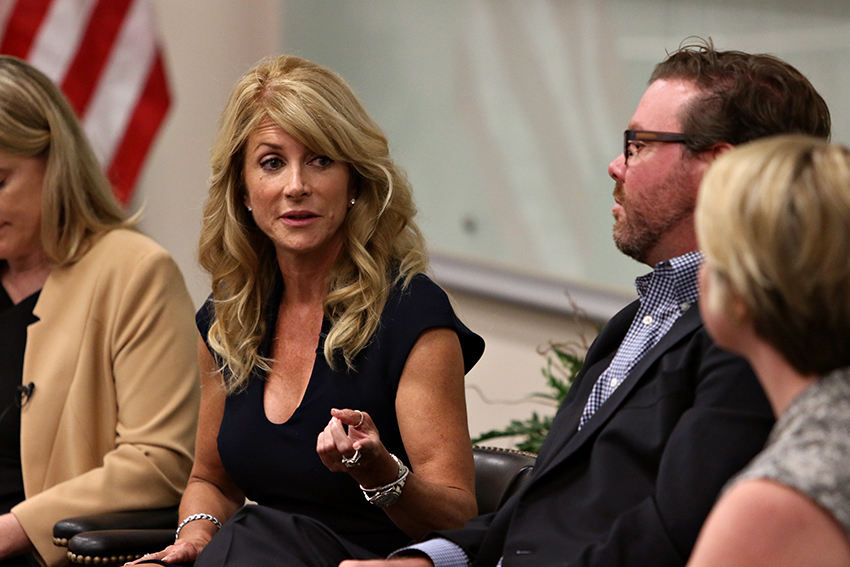The Moody College of Communication brought former gubernatorial candidate Wendy Davis, Republican strategist Rob Johnson and Emily Ramshaw, editor-in-chief of The Texas Tribune, to campus for a conversation on the complex relationship between candidates, campaigns and journalists.
The panelists discussed how politics is shaped by interactions with the media, specifically how things like modern media focuses on political blunders.
Johnson, former campaign manager for former Texas Gov. Rick Perry’s 2012 presidential campaign, said media coverage of Perry’s “oops” moment was an indicator of how the media takes political mistakes out of proportion.
“I bet it was on for 48 hours constantly,” Johnson said. “Every time you turned on the TV, there it was. Responsible journalism was egregious from my standpoint. [The moment] got so ingrained.”
Ramshaw agreed with Johnson on that front, pointing out that Perry’s second presidential run was overshadowed by his mistake from four years earlier.
“He was probably one of the strongest candidates in that room and no one was taking him seriously,” Ramshaw said. “He performed really well on the trail the second time around, and it meant next to nothing.”
The panelists also spoke about how the relationship between the press has shaped the emergence of Republican nominee Donald Trump’s presidential campaign.
“Early on, we sort of treated [his comments and policies] as political blunders,” Ramshaw said. “I think that was a pretty big mistake on our part that we’re only starting to dig ourselves out of. The media is not in touch with the anger and resentment that fuels some communities in our country.”
Davis, thrust into the spotlight for her 2013 filibuster on abortion rights, said her own personal experience with the media is different as a female politician, specifically when asked about her own abortion and her choice to live away from her children while she attended law school at Harvard.
“In my particular gubernatorial race, I found the situation so completely frustrating,” said Davis, founder of the online engagement initiative Deeds Not Words. “The fact that the press was even talking about or covering my decisions as a mother had nothing to do with what I was hoping to bring forward for the state of Texas.”
The conversation was moderated by Sharon Jarvis, associate professor in communications studies. The event filled the auditorium in the Belo Center for New Media, and some students were sent to an overflow room.





















